I’m the author, journalist, producer, and podcast creator Danyel Smith.
SHINE BRIGHT HQ is where I freestyle about music and culture.
It’s Black History Month, and it’s Black History Month daily over here.
So far this month, I’ve published a post a day (which is wild). I like doing it, and I deeply appreciate the response. Thank you for subscribing to, and for sharing my work.
FYI the full SHINE BRIGHT HQ archive is here. And: your daily (for now!) Black History Month newsletter continues. So, it’s time to ⤵️
The first rule about Suzanne de Passe is that you don’t talk about Suzanne de Passe. Well, I’m talking about her. She was recently inducted into the Rock & Roll Hall of Fame.
In the spring of 1968, Detroit was reeling from the assassination of Dr. Martin Luther King Jr. and the uprisings that followed. Suzanne de Passe, a Harlem girl who’d eased out of Syracuse for a bit to book acts at a New York City nightclub, was staying at the Harlan House apartment building where a lot of Motown acts lived — Diana Ross had the penthouse. de Passe, already known for her “ear,” was friends with the Supremes’ Cindy Birdsong, who introduced her to Berry Gordy. After functioning for a short time as a Motown scout in NYC, the label moved her to the Motor City to be Gordy’s creative assistant. “All of the creative matters that came to his office, came to me,” de Passe has said. This was when she was 19.
It was the beginning of a career in which Suzanne de Passe performed at the highest levels, with singular artists, creating some of the most culture-shifting music, television and film of the last six decades. de Passe has done this quietly. Her milieu is the boardroom, the wings, and a billion backstages. She is the star-whisperer, the master strategist, the lonely screenwriter, and in most any creative situation, the de facto leader. Suzanne se Passe, on the way to launching her own genius company, was the discreetly churning motor of all things Motown, the brand that changed everything.
At Harlan House, Bobby Taylor of Bobby Taylor & the Vancouvers introduced de Passe to young Jackie, Tito, Jermaine, Marlon, and Michael Jackson. The brothers sang for her, a capella. de Passe called Gordy, saying Motown should sign them. His response: “Kids?! I don’t want any kid acts! Do you know how much trouble Stevie Wonder is?” de Passe of course won the day. “Mr. Gordy put me in charge of everything having to do with [the Jackson 5] except the actual producing and writing of the records,” de Passe said in 2022. “The show, the wardrobe, the banter, the choreography — we did the choreography for “I Want You Back” in my living room.”
In 1972 Motown decamped to Los Angeles, and de Passe was named head of West Coast A&R. “When I found the second act I wanted to sign — the Commodores with Lionel Richie — [Gordy] didn’t even have to see them, he just said, “Sign them.” With even just these two groups and their solo lead singers on her curriculum vitae, de Passe altered the course of American music history from White-centered guitar-based rock to Black-centered vocals-first pop. Along with Whitney Houston (signed to Arista Records by Clive Davis), Richie and Jackson are the spine of post-1970s American music.
She loved music, but it was bigger than albums and singles. She made it clear that she wanted more, and in a synopsis that belies the complexities of being a woman in the wilderness of the 1970s music business, DePasse told Variety in 2022, “[Mr. Gordy] handed me a script one day, ‘Can you read this and tell me what you think?’ I read it, and told him. “And the next thing you know I’m co-writing Lady Sings the Blues.
Even considering all of the music she oversaw as a record executive, de Passe’s greatest accomplishment may have been that 1972 film, and choosingCK Diana Ross to portray Billie Holiday. Not only did she maneuver the film to completion through a still segregated Hollywood system, she had to leap past the swelling juggernaut that was male-centered Blaxploitation. de Passe’s script turned Louis McKay (portrayed by Billie Dee Williams) into a charmer that in real life he was not, but the film gave Black Americans a love story it craved, turned what could have been a basic biopic into a blockbuster, and provided Diana Ross a vehicle in which to live up to her own ambitions.
Roger Ebert said around the time of the film’s release, “The opening scene is … Billie Holiday is locked into prison, destitute and nearly friendless, and desperately needing a fix of heroin. The high, lonely shriek which escapes from Ross in this scene is a call from the soul, and we know this isn’t any ‘screen debut’ by a Top 40 star; this is acting.”
The film closed the Cannes Film Festival, was the ninth most successful film of that year, and was nominated for five Oscars including for originalCK screenplay. de Passe and company also returned Billie Holiday to the world — no small task in the 1970s when pop was prepping to let the blues and jazz fade to nothingness. As a cherry on top, the double-album soundtrack for Lady Sings the Blues went to No. 1
de Passe was named Motown’s President of Production in 1982. The job was, as she puts it, to be a kind of “swiss army knife.” She was a problem solver. Fixed things — acts, shows, projects, departments — that were broken. When a Motown retrospective was struggling to materialize, de Passe joined as executiveCK producer of what became 1983’s Motown 25: Yesterday, Today, Forever. The show was watched by 35% of the United States. It featured Marin Gaye in the last year of his life. It reunited the Supremes. The Four Tops and the Temptations battled each other, hit for hit. Michael Jackson moonwalked his way toward the global icon he would become.
The creative battles, logistical labyrinths, and management of long-established relationships required to ideate and execute a program that lives on in the collective memory over 40 years later — this is the kind of thing for which de Passe is most known. Motown 25 won the Emmy for Outstanding Variety, Music or Comedy Program, beating out the Tony Awards, Kennedy Center Honors, Second City Television and The Tonight Show Starring Johnny Carson. It also placed Motown on its proper historical throne.
By 1989, after winning another Emmy for Motown Returns to the Apollo, de Passe produced the CBS miniseries Lonesome Dove, starring Robert Duvall and Tommy Lee Jones. The beloved show attracted record-setting audiences, won two Golden Globes, and won eight Emmys on eighteen nominations. Many people were surprised that Motown would be making a western film, especially one with a mostly white cast. When pressed by The Los Angeles Times to account for this move, de Passe spoke for generations of black creatives:
I don’t think we’ve broken the Motown mold...we’ve expanded it...People should be free to do and create anything that turns them on, and I think Motown Productions would be accomplishing a great deal if what our mold became was great entertainment. What I think is interesting...is why no one asks Carsey/Werner [the white producers of The Cosby Show] why they’re in business with Bill Cosby, and nobody asks Simpson and Bruckheimer [the white producers of the Beverly Hills Cop films] why they’re in business with Eddie Murphy. It’s very interesting that I have to answer for the black company that does projects [starring white actors]. I guess it’s because the people who are asking me the questions are more fascinated with what appears to be an encroachment on what has heretofore been pretty much their domain — rather than in any way to think they may have encroached on someone else’s domain.
She may seem a ghost in the machine, but de Passe is a towering presence in American culture, a hero of and advocate for Black music and culture, and importantly a Black woman who made the decision early on to believe her talent, to bravely move across the country to chase her dreams, to deal with the competitiveness and creepiness of a male-dominated business, and then rise to the very very top. The great Ahmet Ertegun once said, “I’d be happy if people said that I did a little bit to raise the…recognition of the greatness of African-American music.” He has this in common with the great Suzanna Celeste de Passe — and they both did way, way more than a little bit.
The above is the version I filed. The final version of the Rock & Roll Hall of Fame essay is here.
More Black History Month-type things:
How about 27 Black women changing the architecture and design space.
Ice Cube, DJ Pooh, Anna Maria Horsford, F. Gary Gray, and more: an oral history of Friday.
What about that Black woman who brought the PAP smear to the people?
That time California truly tried to ban Black people.
Outlandish, a hiking store and adventure group in Brooklyn, is on a mission to encourage Black people to spend time outdoors.
And: Y’all really did click on Ella Mai’s instagram. And her episode of my Black Girl Songbook podcast. And my the sales page of my Shine Bright: A Very Personal History of Black Women in Pop. Thank you.
In music,
Danyel




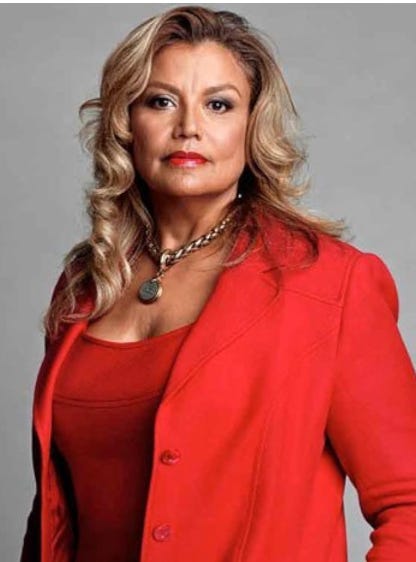
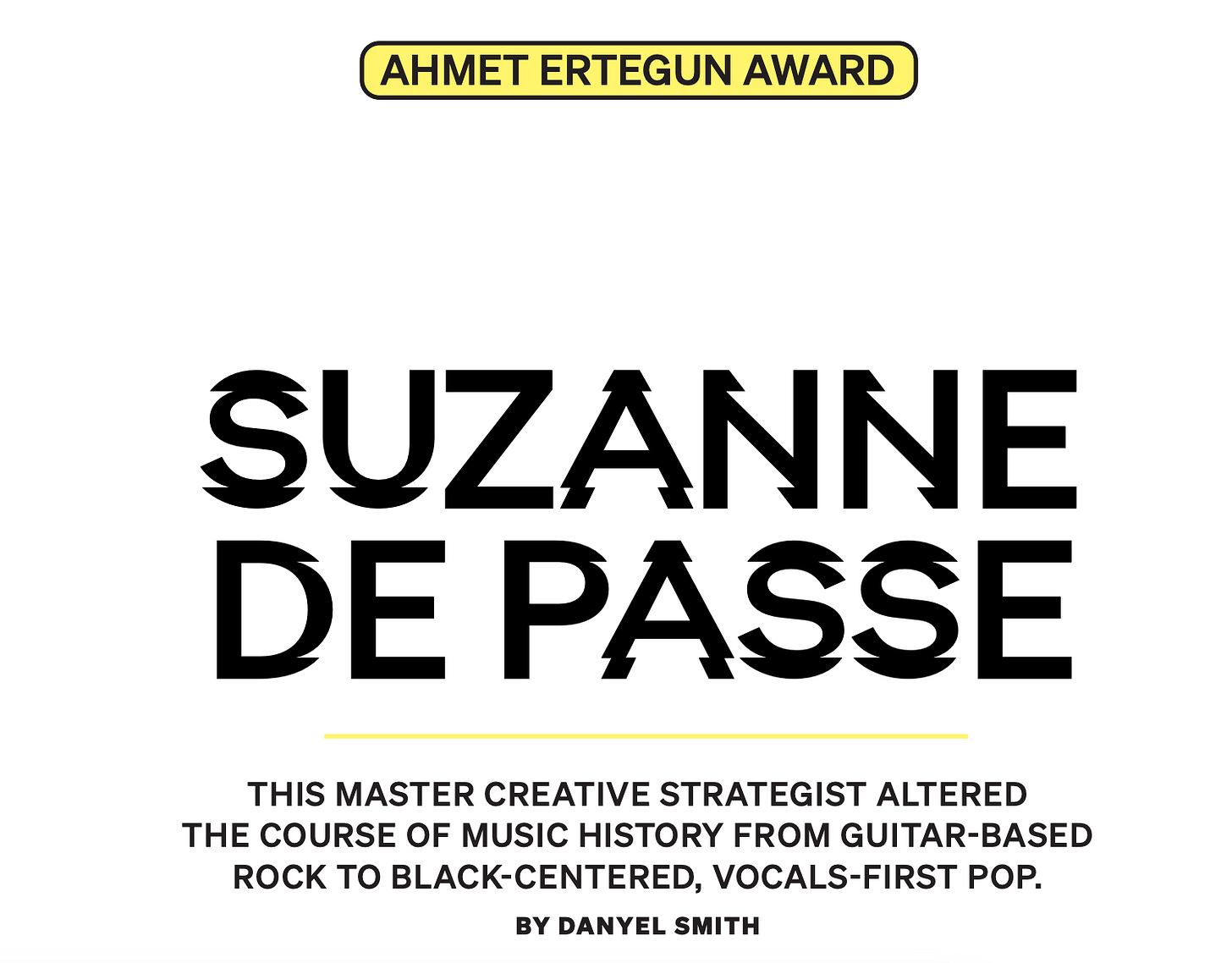
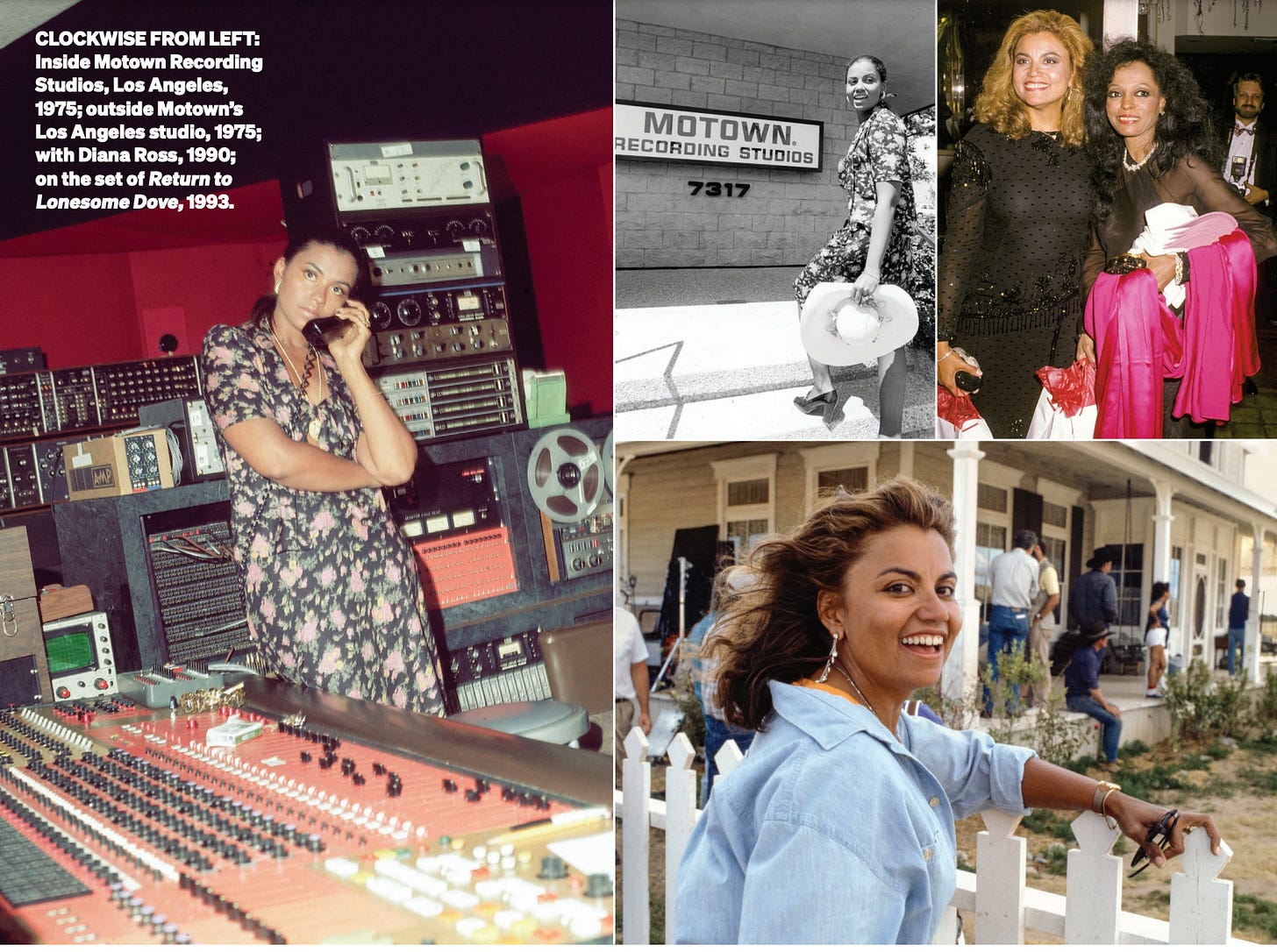
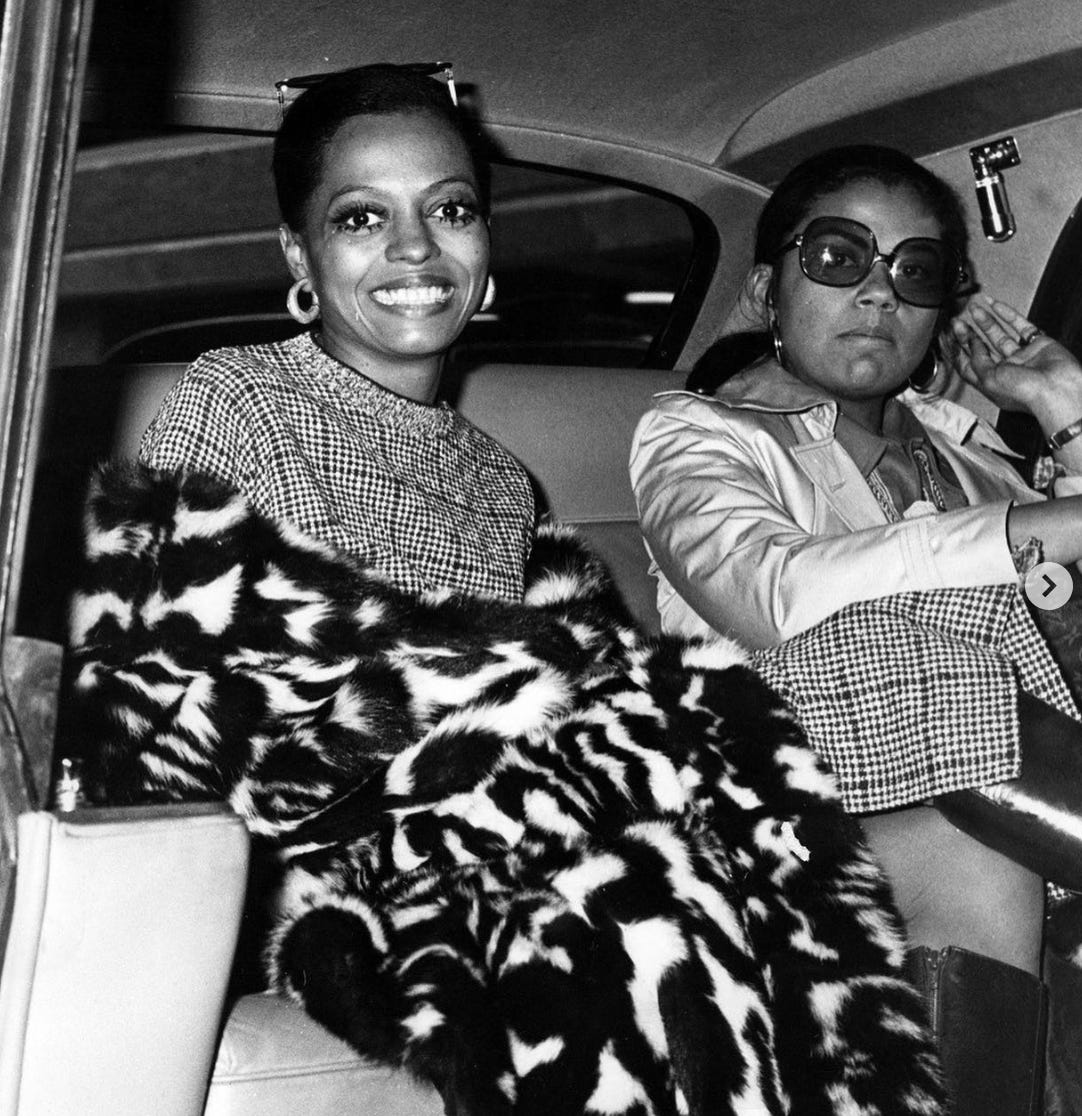
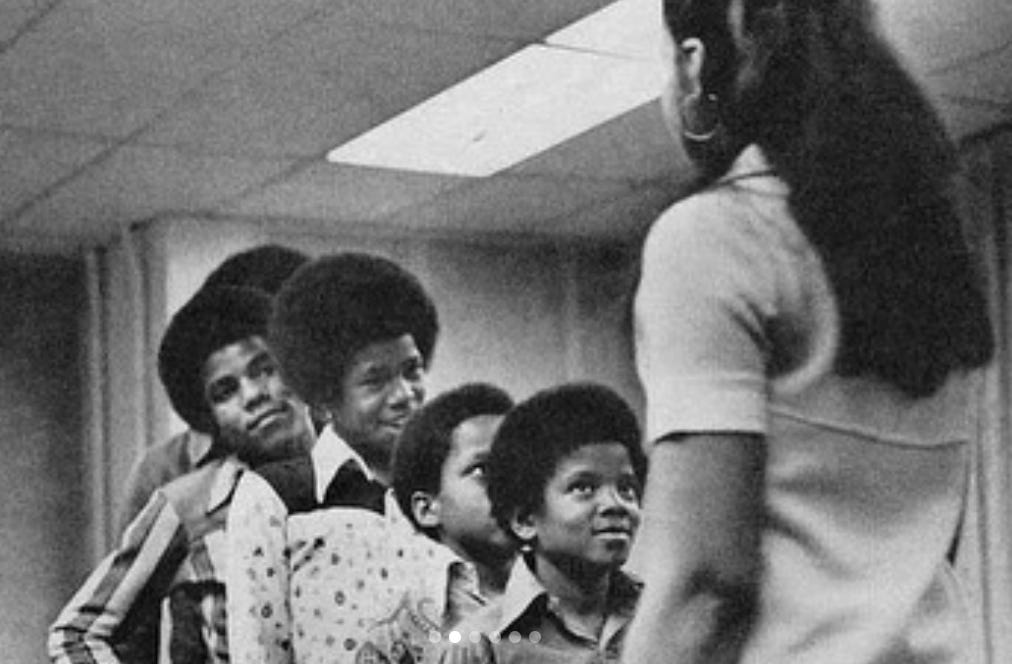
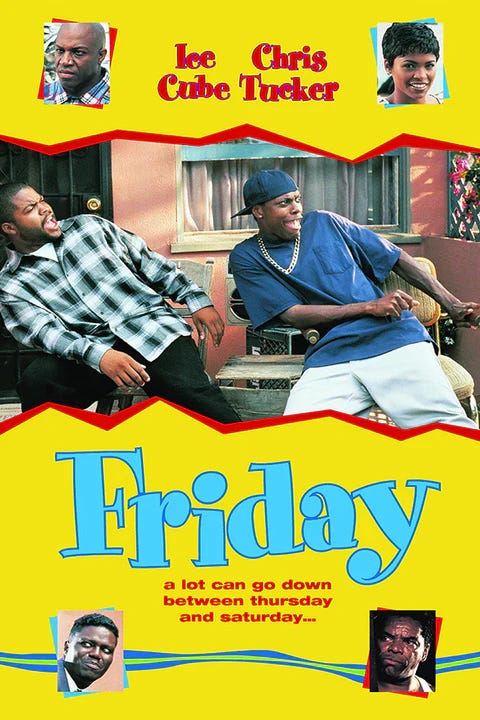
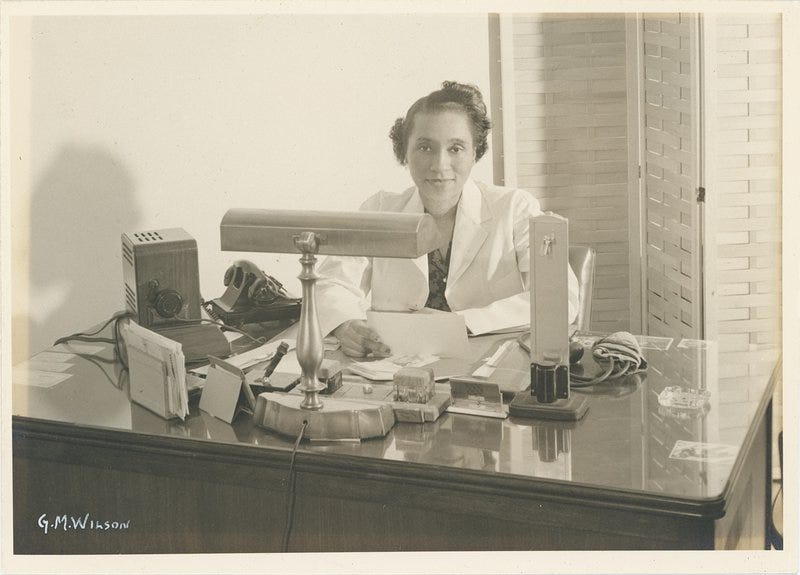
Love reading about women who were such impressive invisible forces. And that quote where she responds to questions about her/their role in Lonesome Dove is so spot on. Thanks for this Danyel, it was a good read.
when i worked at an LA salon a little more than 10 years ago, she came in for a blowout, and i almost passed out. i was the only person in the room who knew that we were in the presence of a LEGEND, which baffled me.